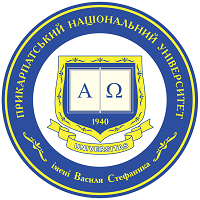MECHANISMS OF COOPERATION OF THE EUROPEAN NION WITH POST-COMMUNIST COUNTRIES
Keywords:
democratization, convergence, convergence mechanisms, instruments of influence, Ukraine, Central and Eastern Europe, European UnionAbstract
This article analyzes and explores the mechanisms of cooperation between the European Union and post-communist countries in the implementation of the pre-accession strategy and the Association Agreement with Ukraine, which provided an opportunity to stimulate democratization in Central and Eastern Europe and Ukraine. The article also analyzes the impact of the crisis in the European Union on democratization processes. The trajectories of development of post-communist countries are fundamentally different. The democratic transit, which began in these countries almost simultaneously after almost thirty years of transformation, has led to the formation of various types of political regimes in the post-communist space - from consolidated democracies in Central and Eastern Europe and the Baltics - to overtly autocratic political regimes in Asian republics. Belarus and Russia. On the territory of the countries of the former socialist bloc there are three groups of countries in which quite different political regimes have been formed. Thus, it is possible that both democratization through convergence and regression of Democratization through convergence results in their case depend on which formation of the state is integrated. In this sense, the European Union is an integration entity with a high level of democracy, and therefore the Association Agreement, and subsequently the accession of CEE countries into this integration formation, had a disciplined impact for the development of their democratic institutions.
References
Гнатюк М. Політична субєктивність Європейського Союзу .Дис…д.політ.н.Київ: Києво-Могилянська академія, 2016.403 с.
Колтон Т., Чарап С. Украинский кризис: Победителей нет. Россия в глобальной политике. Спецвыпуск. 2017. Декабрь. 185 с.
Розов Н. С. Неопатримониальные режимы: разнообразие, динамика и перспективы демократизации. Полис. Политические исследования. 2016. No1. С. 139 – 140.
Conclusion of the Presidency. Relations with the countries of Central and Eastern Europe. European Council in Copenhagen. 21 – 22 June 1993 (SN 180/93). Bulletin of the European Communities. 1993. No 6. P. 12-13.6.
Morawski W., ed., Facing Future Challenges. Warsaw: Wolter Kluver, Polska, 2016; Studia Polityczne, 2017. Vol. 45. No. 3. P. 87 – 115.
Крастев И. После Европы / Пер. с англ. Москва. 2018. С. 15.
EU-Ukraine relations, factsheet. URL: https://eeas.europa.eu/ru/eu-information-russian/29 685/node/29685_uk (01.02.2019)






